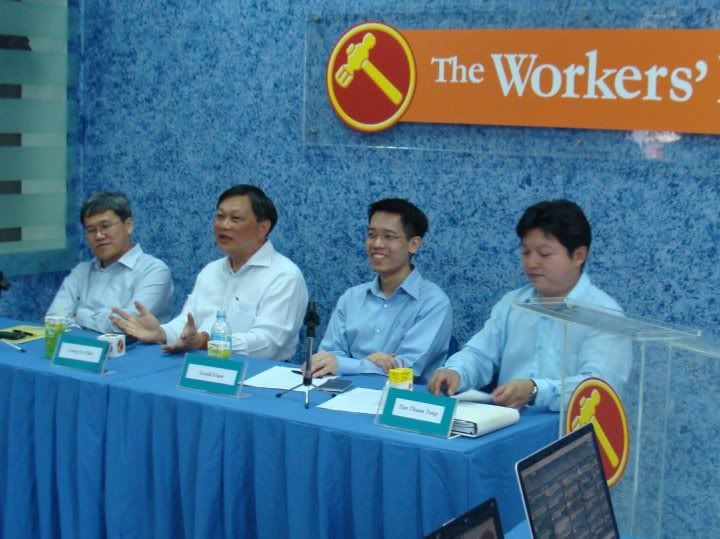A lady wrote this letter to the Straits Times today:
Pregnant, but she has to ‘fight’ for priority seats
I AM eight months pregnant and I commute to and from work by the MRT daily.As my pregnancy progressed, so too did the intensity of backaches and tiredness. I have now resorted to unabashedly asking commuters to give up their priority seats to me. But how does one ask for seats occupied by people who are apparently in deep sleep?A couple of times, I found myself having to “fight” for the priority seat with other women. Needless to say, I lost the battle, but the women did not appear to be embarrassed that someone else had to give up their non-priority seat to me.While I hate to make expectant mothers sound vulnerable and frail, the fact is we are more tired and in greater discomfort than any healthy, non-pregnant person at any given time.The authorities should consider blocking those reserved seats so that pregnant women will no longer need to fight for them or bear with other people’s selfishness.Seow Shih Wee (Ms)I AM eight months pregnant and I commute to and from work by the MRT daily.
As my pregnancy progressed, so too did the intensity of backaches and tiredness. I have now resorted to unabashedly asking commuters to give up their priority seats to me. But how does one ask for seats occupied by people who are apparently in deep sleep?
A couple of times, I found myself having to “fight” for the priority seat with other women. Needless to say, I lost the battle, but the women did not appear to be embarrassed that someone else had to give up their non-priority seat to me.
While I hate to make expectant mothers sound vulnerable and frail, the fact is we are more tired and in greater discomfort than any healthy, non-pregnant person at any given time.
The authorities should consider blocking those reserved seats so that pregnant women will no longer need to fight for them or bear with other people’s selfishness.
Seow Shih Wee (Ms)
Ms Seow, there is no need to “resort” to unabashedly asking commuters to give up their seats if you need it. It is your right and it should be done as a matter of course.
My wife is 6 months pregnant with our second child. Often when she boards the always-crowded MRT with our 19-month old daughter in tow, she encounters commuters sleeping or busy playing with their phones while seated on the reserved seat. She just gently taps them on their shoulder, gives them a smile and asks politely if they would mind giving up their seats. She has never been rejected. After they give up their seats, she flashes another nice smile and thanks them. Easy!
In fact, research has shown that even if you are able-bodied and you ask for a seat, the majority of people will still give it up. This was documented in a “breaching experiment” conducted 30 years ago by Dr Stanley Milgram. He asked his graduate students to go into the New York City subway and ask someone for a seat. As it turned out, 68 per cent got up willingly when they were asked directly.
By asking people for a seat, you are doing other needy people — who may not have the ability or courage to ask — a favour by reinforcing social norms that able-bodied persons are obliged to give up their seats those who need it more. If these people know that they are going to be asked, they are more likely to pro-actively do it next time.
